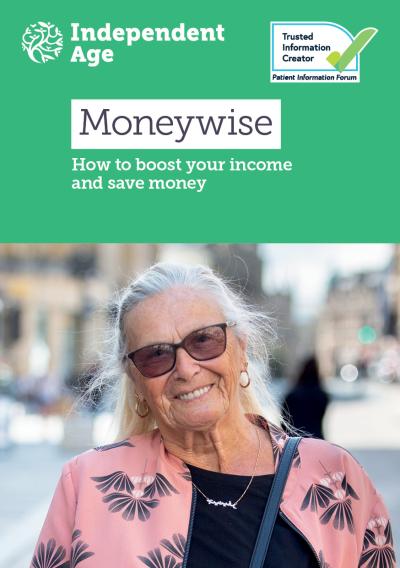Related publications

You won’t have to pay tax on all the money you have coming in, but some of your income will be taxed. Here are some tips about what you should expect to be taxed, how to cut the cost, and help with tax debt.
Tax debt is a priority debt, and you need to deal with it as soon as possible. Contact Tax Help for Older People for more information.
You may have to pay tax on:
You don’t have to pay tax on things like:
You can earn up to £12,570 from all your income streams before you start paying income tax. This is called your personal allowance.
It’s important to remember that what you pay tax on might change over time. Bereavement commonly triggers changes in tax. For example, you may have to pay Inheritance Tax, Income Tax, or Capital Gains Tax. For more information, visit Gov.uk.
Another common trigger for changing taxes is your pension. This includes if you withdraw money from a pension before you’re 55 – this is called an unauthorised payment. The rules can be complicated, so contact Tax Help for Older People for advice.
You can increase your Personal Allowance by claiming extra allowances.
Married Couple’s Allowance could help to reduce your tax bill if:
You can work out what you can get at Gov.uk.
If you or your partner were born on or after 6 April 1935, you may be able to claim Marriage Allowance instead. Marriage Allowance lets you transfer £1,260 of your Personal Allowance to your spouse or civil partner. Your income must be under your personal allowance (£12,570). Your partner must also earn more than you.
You can get Marriage Allowance if:
You can still apply for Marriage Allowance if you or your partner:
If you are registered blind or severely sight impaired, you can claim Blind Person’s Tax Allowance, which adds £3,070 to your Personal Allowance. Contact HMRC to find out how to apply.
You can transfer all your Blind Person’s Allowance to your partner if you don’t pay tax or can’t use all of it.
Make sure you claim back tax that you shouldn’t have paid. You may have overpaid because too much was taken, or you didn’t claim an allowance. HMRC won’t send you a refund unless you tell them that you’ve overpaid.
Contact HMRC for help and ask them to send you a tax return. You can also claim a tax refund online.
Your tax code tells your employer or pension provider how much tax to take from your pay or pension. If it’s wrong, you could be paying more tax than you need to.
You can check your tax code from your P45, or online by using the Gov.uk Income Tax checker. You can also use the service to tell HMRC if you think your tax code is wrong.
Most people don’t have to fill in a tax return. Tax is usually deducted from your pensions and savings automatically.
If you do have to fill in your own tax return, this is called a Self Assessment tax return. Make sure you complete and send it on time. You can do this:
If you're paying your own Self Assessment tax bill, you'll usually need to make two payments on account every year. Payments on account are advance payments towards your tax bill. You'll need to make the first payment by 31 January, following the end of the tax year, and make the second payment by 31 July.
You can be fined £100 or more if you miss the deadline to submit a tax return or pay your bill. You might also be charged interest on late payments. Make sure to get help as soon as possible if you’re finding it difficult to complete your return. You should contact HMRC as soon as possible if you’ve missed your payment or are having trouble paying it on time.
You can appeal against a penalty if you have a reasonable excuse – for example, if you had an unexpected stay in hospital and couldn’t complete your tax return in time.

Tax Help for Older People provides free tax advice for people on lower incomes.
If you want to find out more about tax and how to apply for allowances, visit Gov.uk.